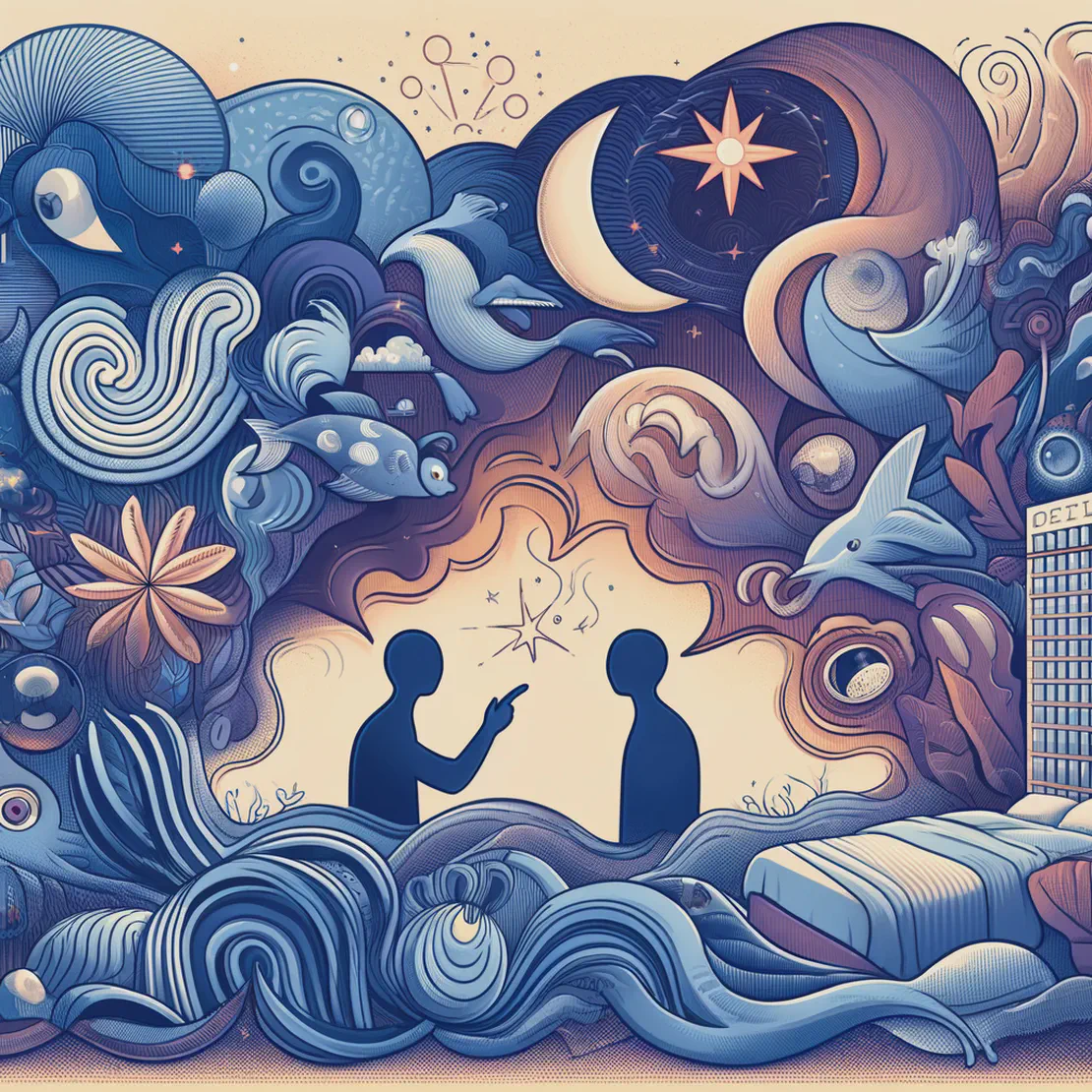
#1109 - Matthew Walker
- The Joe Rogan Experience
- Health , Sleep , Most popular
- April 25, 2018
Table of Contents
At a Glance
-
Science of Sleep in Unfamiliar Environments - “And we actually know the science that one half of your brain will actually not sleep as deeply than the other when you’re sleeping in an unusual room, like a hotel room. Really? That’s what fucks me up”. This highlights how sleeping in a new environment, such as a hotel room, results in only half of the brain getting deep sleep, explaining why frequent travelers may feel less rested.
-
Effects of Alcohol and Marijuana on REM Sleep - “Both of those chemicals, both of which are used as a sleep aid, alcohol and marijuana are actually very good at blocking your dream sleep, your rapid eye movement sleep”. This underscores how alcohol and marijuana block REM sleep, essential for cognitive functions, leading to a rebound effect of intense dreams once these substances leave the system.
-
Impact of Lack of Sleep on Physical and Cognitive Performance - “Men who sleep five to six hours a night will have a level of testosterone, which is that of someone 10 years, their senior. So a lack of sleep will age you by a decade in terms of that critical aspect of wellness, virility, muscle strength”. This illustrates the severe long-term effects of chronic sleep deprivation, significantly reducing testosterone levels and aging men by a decade.
-
Hallucinations from Sleep Deprivation - “By day three, he was having florid delusions and hallucinations. He was seeing spiders in his shoes. He became desperately paranoid such to think that people were trying to poison him in his food”. This experiment highlights the extreme cognitive and psychological effects of lack of sleep, leading to severe hallucinations and paranoia, underscoring the necessity of sleep for mental stability.
-
The Role of Sleep in Skill Acquisition and Memory Consolidation - “Practice does not make perfect. Practice with a night of sleep is what makes perfect because you come back the next day and you’re 20 to 30% better in terms of your skilled performance than where you were at the end of your practice session the day before”. This demonstrates the vital role of sleep in learning and memory consolidation, enhancing skill acquisition and overall performance.
What to Do
-
Maintain a Consistent Sleep Schedule - Maintain a regular sleep schedule by going to bed and waking up at the same time daily, as this helps regulate circadian rhythms and improve sleep quality “Regularity is probably the most important thing I can tell you”.
-
Limit Light Exposure Before Bed - Avoid screens and dim the lights an hour before bed to enhance melatonin production and facilitate sleep onset “In the last hour before bed, try to stay away from screens, but also just switch off half the lights in the house”.
-
Maintain a Cool Sleeping Environment - Ensure your bedroom is cool, which helps lower core body temperature and promotes deeper sleep “Your brain actually needs to drop its temperature by about two to three degrees Fahrenheit to initiate sleep”.
-
Use Cooling Methods for Better Sleep - Use cold pads or take a hot bath before bed to lower core body temperature and improve sleep quality “I’ve seen people use cold pads. You sleep on these cold pads. What do you think of those? … Evidence is pretty good that cooling the body actually works”.
-
Avoid Shift Work if Possible - Avoid working night shifts to reduce the risk of obesity, diabetes, and cancer “Shift workers have higher rates of obesity, higher rates of diabetes, but perhaps most frighteningly, cancer".
-
Prioritize Adequate Sleep for Longevity - Ensure you get enough sleep to enhance life expectancy and reduce mortality risk “The shorter your sleep, the shorter your life. Short sleep predicts all cause mortality”.
-
Utilize Thermal Dump Techniques - Take a hot bath to induce a thermal dump of heat from the body, aiding in quicker sleep onset “You get out of the bath and you have this massive thermal dump of heat that just evacuates from the body. Your core body temperature plummets and that’s why you sleep better”.
What to Get
- “Why We Sleep: Unlocking the Power of Sleep and Dreams” - Matthew Walker https://amzn.to/3VmJImC
- Stability Ball - Matthew Walker discusses the use of a stability ball to demonstrate the impact of sleep on balance and stability muscles. He highlights how lack of sleep deteriorates these muscles, increasing injury risk. https://amzn.to/3VmBP0o
- Weights (General Exercise Equipment) - Joe mentions lifting weights as part of his exercise routine and notes how the quality of his sleep affected his performance. https://amzn.to/3xf5xwo
- Running Shoes/Running Equipment - Joe talks about his experience with running, linking his performance directly to the quality of sleep he had. https://amzn.to/3xj01cc
- Dimethyltryptamine (DMT) - Discussed in relation to its effects on the brain and memory during psychedelic experiences. The sentiment is neutral to positive, highlighting the similarities between DMT experiences and dreams.
Summary
The conversation between Joe and Matthew Walker in the transcript is a fascinating deep dive into the importance of sleep and its impact on health. The conversation kicks off with Joe and Matthew discussing the peculiarities of sleep, particularly the differences between REM and non-REM sleep, and how environmental changes, such as staying in hotels, can disrupt sleep quality. Walker highlights the evolutionary aspect of sleep, explaining how animals, including humans, have developed mechanisms like lighter sleep stages in new environments for threat detection. Joe shares his experiences with disrupted sleep while on the road, which Walker explains as a natural defense mechanism, ensuring that part of the brain remains alert. They delve into the fascinating fact that dolphins can sleep with half their brain awake, a survival trait that somewhat parallels human lighter sleep in unfamiliar settings.
As the conversation progresses, they explore the effects of substances like marijuana and alcohol on sleep, especially their impact on REM sleep. Walker elucidates how these substances can suppress REM sleep, leading to a rebound effect where the brain tries to catch up on lost dream sleep once the substance is cleared from the system. Joe shares his personal experience with “Sober October,” noting the vivid dreams he had after abstaining from marijuana, which Walker attributes to the brain’s recovery of REM sleep. They also touch on the broader consequences of sleep deprivation, linking it to serious health issues like cancer, cardiovascular problems, and cognitive decline, with Walker pointing out that even losing an hour of sleep can significantly increase heart attack risks.
In a lighter moment, they discuss extreme examples of sleep deprivation, such as a DJ who stayed awake for eight days, leading to severe hallucinations and paranoia. Walker emphasizes the crucial role of sleep in maintaining overall health, comparing the societal neglect of sleep to ignoring diet and exercise. The conversation also touches on the economic impact of sleep deprivation, with Walker advocating for public health campaigns to promote better sleep habits. Joe’s anecdotes about his own sleep challenges and their impact on his performance underscore the importance of prioritizing good sleep hygiene for both mental and physical well-being.


